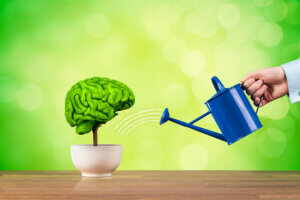Resilience, or “חוסן” in Hebrew, is one of the most researched areas in recent years. The reason for this is the attempt to understand why certain individuals are more resilient, meaning they can cope effectively with life’s challenges and recover more quickly and easily from difficulties such as illness, separation, the death of a loved one, professional failure, economic crises, and so on. This has led researchers to ask what defines resilience and whether it can be intentionally developed in individuals who feel less resilient, thereby empowering them.
Resilience is not only related to coping with crisis moments but also with the regular hardships of life. As we age, it becomes more difficult for us, we feel more pain, have less energy, or feel less confident in ourselves. It is important not to let the changes that occur with age define our lives in a way that limits us in the world. On the contrary, the third age is a great opportunity to experience things we never had time for and discover ourselves in new ways.
Most often, we perceive resilience as synonymous with coping ability. Effective coping with crisis moments requires creative problem-solving, evaluating the advantages and disadvantages of different options, and implementing the solution to the problem. Additionally, it requires the ability to manage the emotional distress surrounding the situation. It is important to note that resilience is related to a healthy lifestyle and relies on various components such as mental strength, physical fitness, social support, a sense of independent action, and control over life.
The connection between the body and mind in resilience
Engaging with resilience requires us to consider the interaction between the body and mind, between emotions and thoughts, based on an understanding that everything is interconnected. Our physical state affects our emotions and thoughts, and they, in turn, affect the body. To start getting to know ourselves in this way, we can ask ourselves at the beginning of each training session – How are we today? How are we at this moment? – and use a scale of 0-100 to measure ourselves even before we start the training (ineffectiveness) and also to measure ourselves again at the end of the training to see if anything has changed in our experience as a result. One important aspect of building resilience is learning to identify our starting point.
The effects of positive and negative stress
Resilience certainly serves us in coping with stress, which is a necessary physiological component that drives us to action. However, when stress exceeds what is beneficial for our functioning, or when it remains at a high level over time and becomes chronic, it has negative effects. Since life generates stress, our ability to cope with stress, to identify and accept its effects on us, to understand its changes, and to see it as something positive, is crucial. We cannot always control external circumstances, but we can control our responses to them, and this is where resilience plays a vital role. We cannot always avoid stress, but we can develop the ability to manage it effectively.
Hoare. “Resilience in the Elderly.” Journal of Aging Life Care (2015).



